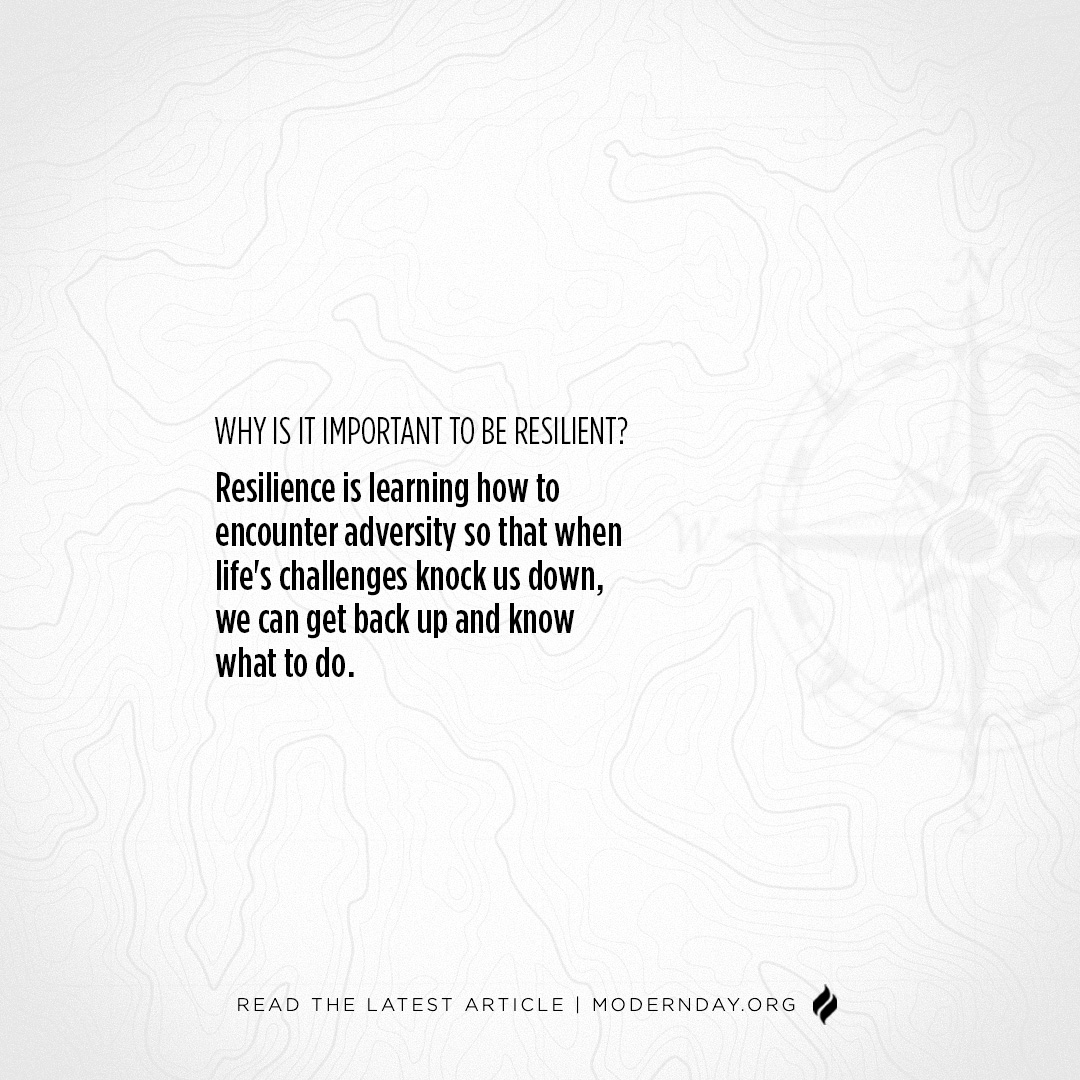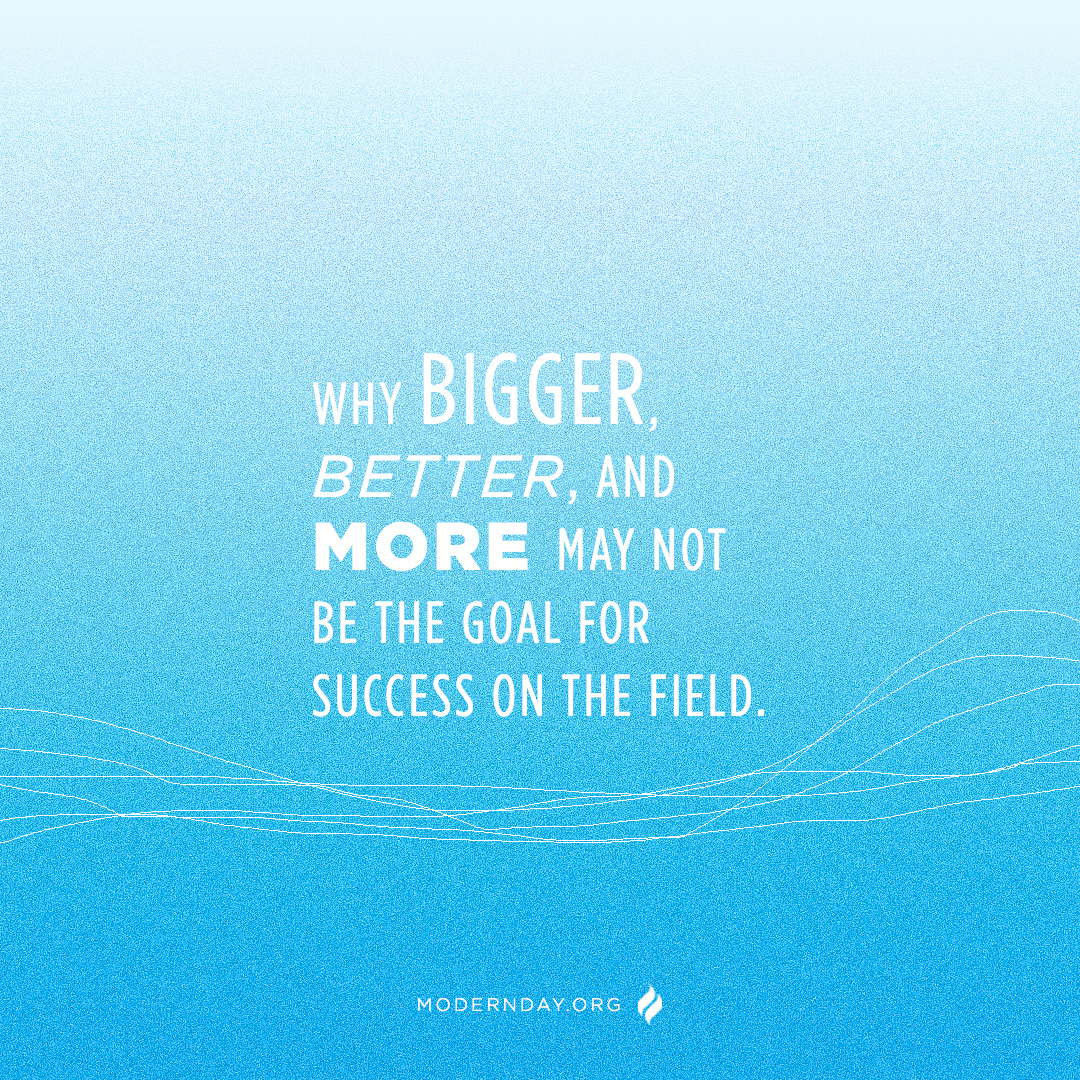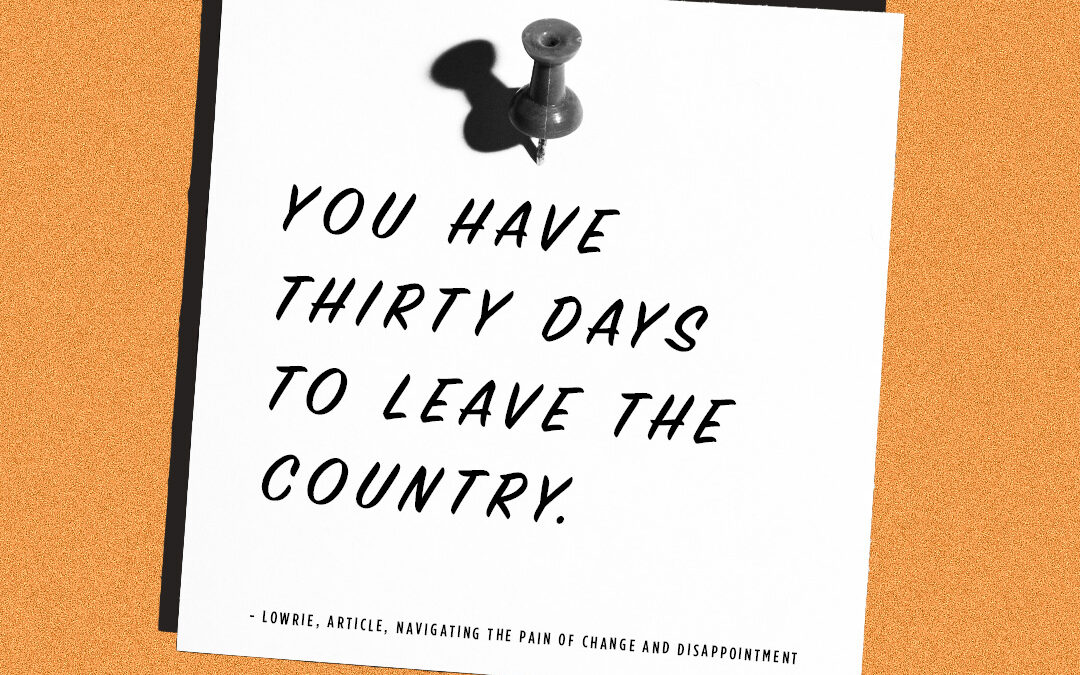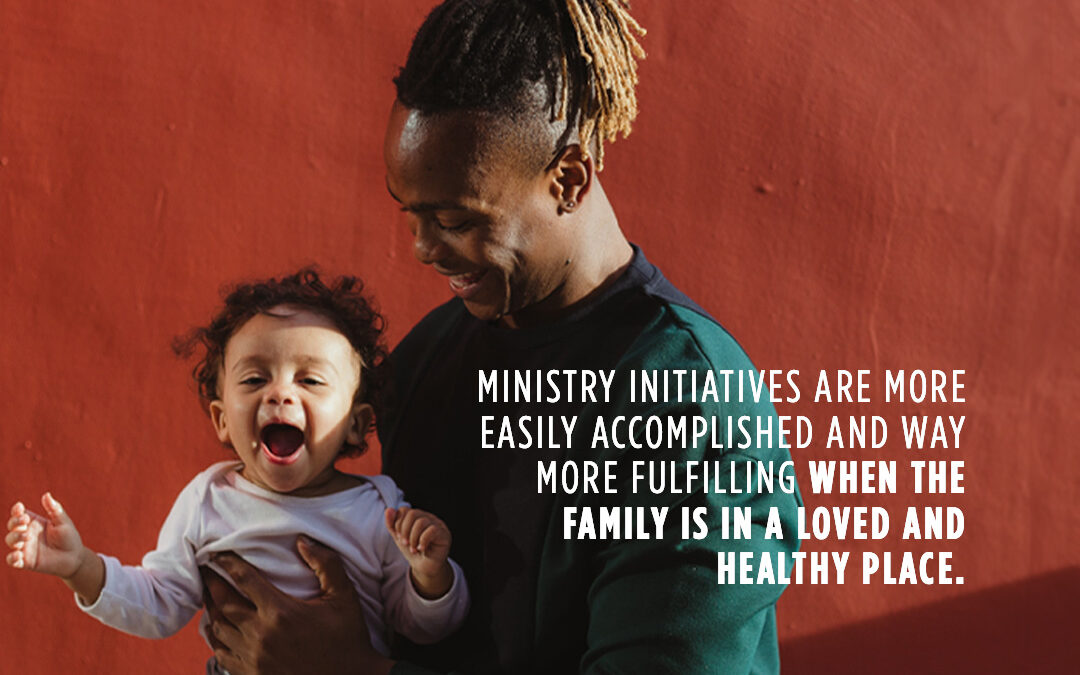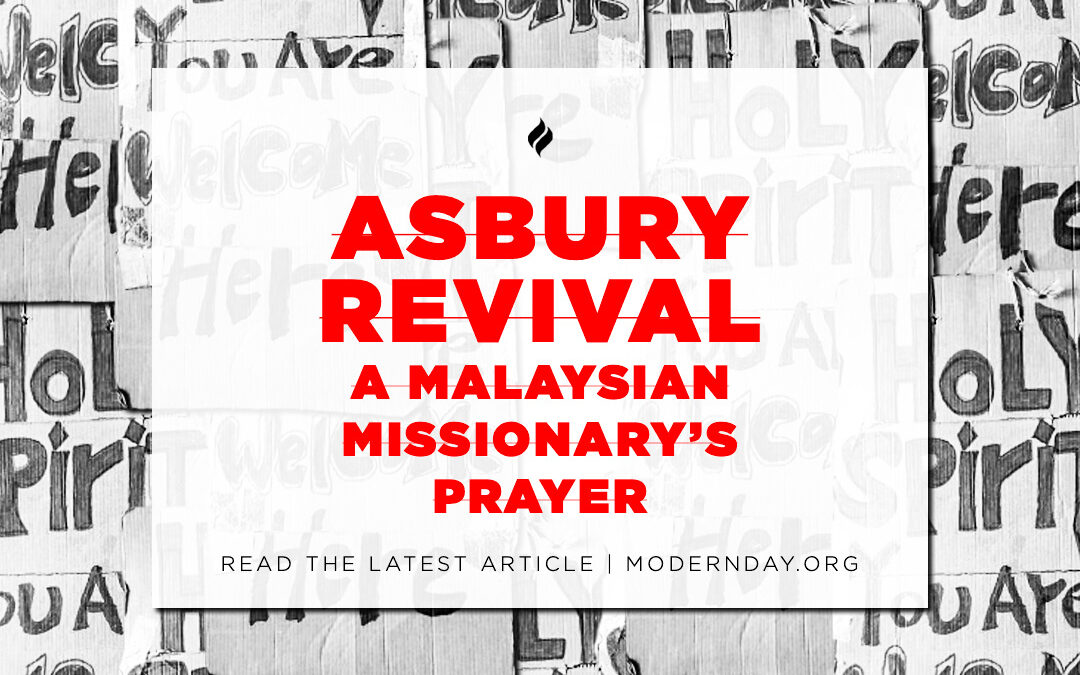A few weeks ago, the Modern Day Missions Podcast aired an episode titled “Building Resiliency Through Adversity with Brian Gibson & Joel Bates.” Here are some key points to share that highlight the necessity for resiliency when facing adversity, whether you’re a missionary, business owner, CEO, or stay-at-home parent. Our host Stephanie Gutierrez chats with Brian Gibson and Joel Bates about the start of Train International, the conversation around resilience, and which “compass” we are to follow.
What was the genesis of why you do what you do at Train International?
Here at Train International, we had the vision to ask, “What is the best way to do more than throw a bunch of really great, helpful information at people before they’ve gone to the field? How could we incubate that for transformation?” My wife and I (Brian) dove head first into the deep end of missions starting in India and ending in Ireland. Then when we came back from the field, we started working at Discovery Ministries – which historically is a camp that primarily works with youth. At this camp, we used the outdoors to challenge people and students. On my first trip as a new instructor, I thought, “I wish I could have gone through this experience before being a missionary.”
That’s where it started for me. I started looking for a missions organization crazy enough to let me and my crew take missionaries out and put them through challenges to test their resolve and hopefully build their character.
You put missionaries in challenging situations that differ from the problems they’d find in their home countries. However, you’re not trying to create perilous experiences. You’re creating adversity for them to discover who they are and what they will be like when they come against adversity on the field, which is significant. Can you speak more about that?
It’s funny because we’ll take these missionaries in training, and they’ll realize and say, “You’re giving me a backpack. We’re going into the woods. This is different from the context I’m going to.”
Brian and I (Joel) will look at each other, smile, and think, “This is precisely like the context you’re going into because of the challenge, the unknown, and the ambiguity of it all.”
The classroom setting we utilize will look different from the context of going to a foreign city, but the things it’ll conjure up in you will be the same. They’re going to be the things you will need to work through. It’s as if to say we’re containing adversity and exposing missionaries to it, knowing they will eventually face the same inner reaction at some point.
There’s a safety element to how you (Brian and Joel) operate at Train International. People come in knowing they will experience trouble. Yet, they also have you guys walking with them while facing adversity. People can process and talk about it in a contained way before seeing it in real life. By then, these individuals won’t have somebody necessarily holding their hand through that process. What you are trying to create while missionaries are there is that resilience, learning how to encounter adversity, and becoming resilient so that when life’s challenges hit us, we can get back up and know what to do.
Resilience is a trending topic in many circles right now. Several books and materials from best sellers have recently hit the shelves on the importance of resilience. Why do you think resilience is such a hot topic right now? Why is it so relevant?
That’s a great question. This topic is relevant now because building resiliency is being tested and found wanting right where the adversity exceeds my capacity to navigate it. At the moment, I (Brian) may look back, learn some lessons, and grow and do better next time—end of the story. There’s more to be discovered about resilience, specifically, how to increase it within us.
We realize that we can find more resilience in the gym of life. One of the distinctions I like that John Eldredge brings out is that it’s true: we can have behaviors, mentalities, and skills that build our strength when it comes to resilience. Still, there is another kind of resiliency that John Eldredge teaches us about in saying it’s the kind of resiliency that is bestowed. We access this resilience through the Lord, reflection, and the Holy Spirit, and we grow in that as well. We don’t want to emphasize one to the detriment of the neglect of the other.
I (Joel) agree wholeheartedly. Our culture is soft. Historically, many cultures had a lot more built-in adversity in their lives. They also had coming-of-age ceremonies built into their cultures, which we don’t necessarily have. I love what you said there, Brian, about feeling a sense of something being bestowed upon you that you know that you have what it takes to do this.
I think the pandemic rocked us, and we didn’t have as much resiliency going into that. And now, people are aware and say, “Oh wow, I need to do something in my life to build some resilience in me and be able to make it through hard times.”
To recap, for those that may believe they’re not naturally resilient like others but want to increase that: (1) there is a supernatural source through access to the Holy Spirit, and (2) we can build our resilience repeatedly. There’s no need to feel capped by your current capacity!
You referenced that it’s essential to trust your compass. Your compass isn’t going to lie to you. What would you say would be the compass for the missionary?
That imagery is so powerful for me. A compass is true north when everything else fails. I think of that line from the Lord of the Rings where they give out gifts. Galadriel gives Frodo that light, and she says, “May this be a light for you in dark places when all other lights have gone.” It’s such an epic line that’s burned in my memory.
In moments like those, we ask, “What is that? What is the bearing of the compass?” Some easy and obvious answers are that the word of God is the truth and brings perspective, the ability to zoom out, take a breath, and acknowledge the absolute reality of everything around you. For example, it is dark, we are wet, we have been rained on, and we have been walking for miles. We’re still determining if we’re done or not. There might be more. All of that is true. And in addition to that being true, we’re not saying, “Yeah, yeah, but look at the cross!” to diminish, avoid, or minimize the situation. It’s not that at all. It’s fully acknowledging the reality and then making space in my heart. Making space in my mind for it to be enough that the Lord knows there is more to the story than I can see. That’s helpful for me. There’s so much more to this story.
The facts are only sometimes representative of reality, and there’s more to the story than we see. It’s powerful when we tune in to that compass bearing, look to God to help us create a complete picture of reality, and not just say, “Truth is whatever my sense is, but Lord, tell me the facts and the greater vantage point.”
For missionaries already on the field right now, what would you say to them as they try to become more aware of their triggers and what to do about them?
This question reminds me of what John Maxwell said in response to someone saying that experience is the best teacher. He was the first person I listened to who said, “I don’t see it that way.” If that were true, there would be no old fools because all you’d have to do to get wise and intelligent is merely not die, have experience, and be awesome. I think about that often because he corrected it and said that it is evaluated experiences reflected upon that allow us to pull out insights to help us.
In Tish Warren’s book Prayers in the Night, she succinctly said that when we encounter a crisis, all of us, from presidents to peasants, fall back on what we believe about God, ourselves, and others. Those are three massive pillars well articulated.
It’s probing and reflecting, thinking about these experiences, looking at these adversities, examining them. Many of those reading this are already on the field, or they’ve passed that mile marker of getting pre-field input. Now it’s about taking the time to acknowledge, “What do I fall back on amid adversity? What do I believe?”
Get to a place where when crisis comes, I realize, “Gosh, I see in myself a tendency that shows I don’t quite fully believe that God is good or that he loves me even if I do a lousy job at something, that his love isn’t consistent, that it’s not okay to struggle, so I’m hiding that from others.” What are those beliefs, and where are those behaviors coming from? It’s beneficial to reflect so those experiences can be the best teacher.
God is developing something in us for our good and is using adversity to do it. But that’s not the end of the story. Perseverance must finish its work so we can be mature and complete, not lacking anything, and that’s where we want to be. Abiding in a true identity where we always believe that God loves us, and we don’t have to question it.
What helps you face adversity?
One thing that has helped me most with adversity and resilience is expecting it. Flashback to when I played basketball in high school for only one year – because I was terrible. I was a good defender and couldn’t shoot to save my life.
I remember the stance they taught us, similar to volleyball, where you get down and you get low. You don’t get into that stance with fear or with negativity. I would never squat down in that position thinking, “Oh no, someone can come and knock me over or come against me with the ball.” I got ready and got in place because that was part of the game. I might have gotten down into that position with a little twinkling in my eye like, “Come at me. Let’s see what’s going to happen here.”
We live in a culture where we don’t expect adversity, and it feels like we’re entitled to this life of just pure butterflies, joy, and sparkles. What kind of a life would that honestly even be? When have you ever watched an inspiring movie or read a great book about a person who just had a happy day every day?
The point is that we need that resilience in our story. We don’t want it, but we need it. And when we can expect it from a position of thinking, “Okay, it’s coming, but I’m going to get ready for it. It doesn’t mean it won’t knock us down sometimes, but it means we see it coming to some degree, not how it is, but we know it’s coming,” we can prepare.
Do you want to leave any other points or takeaways with our missionaries, readers, and listeners regarding resilience?
One final thought I can think of is that “theology of suffering” is a phrase that we throw around that sometimes seems complex or a bigger deal, or a more significant thing than it is—but learning to expect it and training my heart and shifting my expectations to where my default mode is to anticipate adversity is a more accurate explanation for it.
I think a theology of suffering is where we let God’s word inform us more than our culture, flesh, or our desire for ease and comfort do so.
Another practical tool that’s been helpful for us is the acronym SPIRE, which stands for spiritual, physical, intellectual, relational, and emotional well-being. It’s thinking more holistically about ourselves. Every so often, I pause to say, “Where am I at? What’s my baseline? Where am I right now? Is there an area where I have a hole in my armor as far as resiliency goes?” Look at what is weakest right now, where I’m suffering the most, or not in a great place. Then, bring a lens or magnifying glass to help evaluate and discover my kryptonite.
There’s probably something I’m doing in my physical life or relational well-being that part of the dimension of my person is contributing to the adversity I’m experiencing. Sometimes we like to think it’s all out there, but I’m probably one of the contributing factors that I have. Observe your kryptonite habits, mentalities, communication, operating under stress, and coping mechanisms. Grab that lens and look at saying, “All right, what is the one thing that I could stop doing that is going to quit harming myself in this area?” And then what’s the keystone? If there’s just one thing I can do differently, Lord, help me practice consistently that identity I want to incubate.
In conclusion, we all face adversity, which we can prepare for! There’s hope in the face of the unknown, wild circumstances, and bad reports. We must reflect on our experiences, get curious, and invite the Holy Spirit into each moment for healing and wisdom moving forward.
Listen to the full episode “Building Resiliency Through Adversity with Brian Gibson & Joel Bates.”

